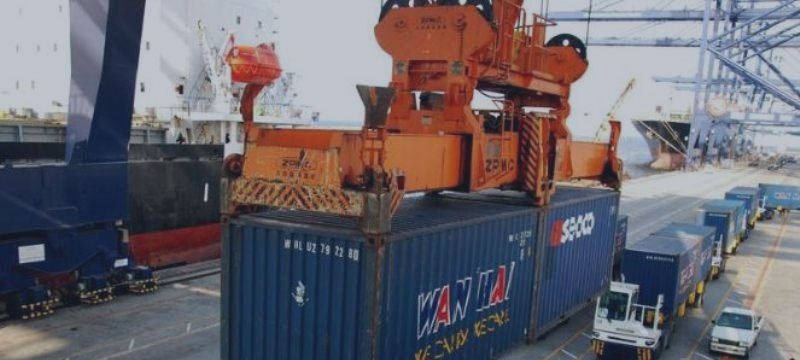MOST large: In photos taken Monday (6/8), appears to be a container being loaded onto his truck at a port in Tokyo. Japan trade deficit increased to recorded the most in five months, July, as a result of anjloknya melamban export demand from China and other major markets, while imports dropped less than forecast. Japan trade deficit reached 268,1 billion yen ($ 2.2 billion) reported Thursday (7/8) compared to a deficit of 70.5 billion yen ($ 566 million) in June.
New York.
The Governor of Bank Indonesia, Tuesday (3/8) must choose between
lowering interest rates to support growth or increase mass to boost its
currency. Finally he decided to split the difference and not taking any
steps. The Governor's dilemma (Agus DW) Martowardoyo is symbolic of the situation that is emerging in the market was further disheveled world, said Analyst William Pesek.
Six
months ago, the biggest concern Martowardoyo and colleagues at emerging
markets ranging from Seoul to Brasilia is case Yellen will soon
announce the first tightening of US interest rates in a decade.
Now, the steps taken by the US central bank (The Fed) seems not so distracting compared with threats due to low economic growth, currency devaluation and plum shares (which is dropped again Tuesday, 6.2%) in China.
In
addition, a number of emerging nations are in a State of vulnerable
increases since 1995, when Martowardoyo served as the highest official
of the monetary field in Jakarta. Earlier, the country's largest economy
in Southeast Asia were joined by Brazil, India, South Africa and Turkey
as members of the Fragile Five (five countries vulnerable) Morgan
Stanley dubbed as the five countries of emerging economies that are at
risk of experiencing stagnation.
Now,
the bank's strategist statment concerns about what could be termed
the Troubled Ten (ten countries in trouble). Sincerity is Singapore,
South Korea, Taiwan and Thailand together with Brazil, Chile, Colombia,
Peru, South Africa and Russia.
However,
from all countries, the neighboring country said that Beijing is the
most risky. For years, China's growth reached 10% and demand that big
against commodities and manufactured goods has increased the GDP of
Asia. Cover the weaknesses inherent in the financial system of the
region and its growth model, while pressing politicians to push the
reforms he did--until now.
Indonesia categorized Exhibit A for satisfaction of ourselves that chronic.
Since taking office last October, the President of Joko Widodo
including slow in taking action to reduce bureaucracy, improve
productivity or strengthen competition.
Forced to pay
Now,
he was forced to pay that because of the devaluation of China are
increasingly pressuring the rupiah currency, one of Asia's worst
performing this year. Exports were down 19.2% in July, while imports
plummeted 28.4%--a sign that demand is weakening both outside as well as
inside the country.
Malaysia
could also be a consideration, with its currency, the ringgit, is on
the last level during the Asian financial crisis in 1998. After a hard
hit by various political scandals and plummeting commodity prices,
runaway capital Malaysia now faster because investors are now much more
nervous against the Chinese yuan.
The
same thing also experienced baht Thailand, which are already stressed
by various economic policies without direction from the military junta
that ruled the country (a mysterious bomb blast in Bangkok Monday (6/8),
which killed at least 20 people, the aggravating circumstances).
Korea won also slumped.
The country's fourth-largest economy in Asia that are trying hard
tackle due to slow in China (which reached 30% exports Korea in
2014), but Japan renews its approach with the recession.
Japan
experienced a growth contraction of 1.6% on an annual basis in the
second quarter, to magnify the obstacles for the central bank, the Bank
of Japan (of the BoJ) in its efforts to bring down the value of the yen.
The last thing needed by South Korea's President Park Geun Hye is spur a
decrease between high-tech Japan and low-cost China.
However, this situation is difficult to go back to the days of the crisis of 1997 and 1998.
For overall vulnerability in Asia, financial system, debt markets and
central banks are quite capable of fending off the global turmoil now,
said William Pesek.https://www.mql5.com/en/signals/120434



